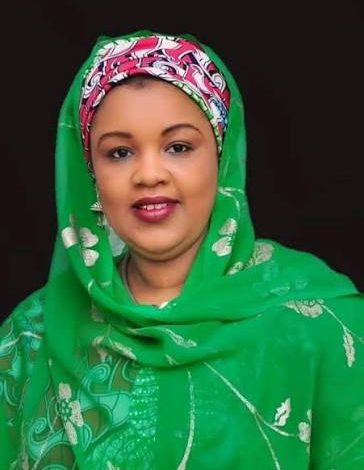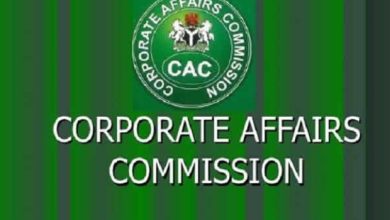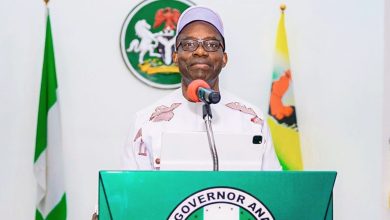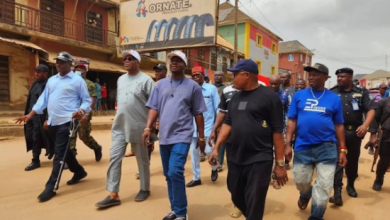Masses, not religions, should confront Nigeria’s leadership failures By Umma Getso

Nigeria stands at a critical crossroads, a nation rich in potential yet consistently held back by leadership that has failed to prioritize the people.
Across successive administrations, the same troubling realities have persisted: deepening insecurity, economic instability, corruption, and a widening disconnect between those in power and the ordinary citizens they claim to serve.
And each time public frustration grows, a familiar and troubling pattern re-emerges: the nation becomes engulfed in religious and ethnic tensions that conveniently shift attention away from the real issues.
In recent months, public discourse has increasingly framed Nigeria’s challenges as battles between Muslims and Christians, or between one ethnic group and another.
But analysts and citizens alike are beginning to ask a more fundamental question: Whose battle is this really?
The evidence suggests that these divisions are less about genuine religious or cultural conflict and more about political strategy, a deliberate diversion that has been employed repeatedly over the decades.
The cycle is well known to Nigerians. A major national tragedy occurs often involving mass kidnappings or attacks and the country erupts in grief and anger.
Rather than answers or accountability, citizens receive denials, vague reassurances, and political statements that offer little clarity.
The examples are etched into national memory: The abduction of the Chibok schoolgirls in 2014, the kidnapping of the Dapchi students in 2018, and the recent cases involving the Maga and St. Mary schoolgirls in 2025.
In each instance, families are left waiting for credible explanations, while communities mourn and struggle to rebuild.
Yet, after the initial outrage, public attention is gradually pulled away, often through renewed religious or ethnic disputes that dominate the national conversation.
This cycle has repeated itself so frequently that many Nigerians can predict its trajectory.
As the 2027 election cycle approaches, observers warn that the country may once again witness an increase in politically convenient crises followed by divisive rhetoric aimed at splitting the citizenry along religious and regional lines.
Despite outward political disagreements, Nigeria’s ruling class remains united in one respect: the pursuit of power, wealth, and personal security. Unlike ordinary Nigerians, political leaders rarely clash over religious or ethnic identity.
Their alliances shift fluidly depending on political convenience, not faith or cultural loyalty.
Meanwhile, ordinary citizens, Muslims and Christians, Northerners and southerners alike share the same daily struggles including soaring food prices, widespread insecurity, rising unemployment, an education system in disrepair and anxiety over the safety and future of their children
These shared burdens raise a critical question: If the problems are the same, why are citizens fighting one another instead of holding leaders accountable.
As the next general election approaches, analysts warn that the same tactics may resurface with renewed intensity.
Political narratives will be sharpened to emphasize religion and ethnicity. Social media will become a battleground of misinformation.
Communities would be encouraged subtly or directly to view one another as competitors rather than partners in a shared struggle for better governance.
This strategy has worked for decades because it keeps the electorate divided and distracted, allowing the political class to maintain power with minimal accountability.
The question now is whether Nigerians will recognize the pattern in time to break it.
The frequency of kidnappings, school abductions, and violent attacks has led many citizens to conclude that these events are not random acts of criminality.
The timing, scale, and political consequences raise questions about whether some crises are being allowed or even engineered to create fear and confusion.
What is clear is that insecurity is not an inevitable national condition. Nor is religious tension an organic or unavoidable feature of Nigerian life.
Both can be inflamed or defused depending on the behavior of those in leadership.
As Nigeria moves closer to another election cycle, the call for unity has never been more urgent.
The real divide is not between mosque and church, or between north and south.
It is between a political elite focused on self-preservation and a population struggling for stability, justice, and opportunity.
If the nation is to move forward, citizens must begin to question long-standing narratives, resist political manipulation, and demand accountability from those entrusted with power.
The stakes are high and the future depends on collective clarity.
Nigeria does not need another cycle of division. It needs a united citizenry ready to confront the leadership failures that have held the country back for far too long.



